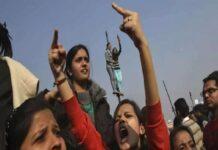As the Aam Aadmi Party (AAP) basks in its victory in the Delhi assembly election and its leader is poised to take up the mantle of chief minister for the third time, the tale of Jaya Prakash Narayan’s similar experiment in the united Andhra Pradesh state comes to mind.
Arvind Kejriwal is a former civil servant and activist who has scripted a success story of his own in electoral politics. Narayana also had the same credentials and was in fact Kejriwal’s predecessor. But his political journey did not have the same ending.
In 1996, Jaya Prakash Narayana is widely known as JP, gave up his lucrative Indian Administrative Service (IAS) position to start a grassroots movement for good governance. At that time, Kejriwal was just one year into his Indian Revenue Service (IRS) posting and would take voluntary retirement to enter public life as an anti-corruption activist.
Just as Kejriwal founded an anti-graft outfit named Parivartan to strive for probity in public life, JP too founded an organisation – Foundation for Democratic Reforms (FDR), one of India’s leading think-tanks and scientific research centres – with a similar objective. Its focus areas include political and electoral reforms, good governance, genuine empowerment of local governments, judicial reforms and key areas of state policy such as education, healthcare, agriculture and cooperatives.
JP also established a non-partisan NGO called Lok Satta in 1996 to bring in democratic reforms that will ensure citizens’ empowerment. A decade later, he converted the organisation into a political party. This is a story that will be familiar to those who followed the India Against Corruption movement and the birth of the AAP from it.
Both Kejriwal and JP succeeded in capturing the imagination of the urban elite and the educated middle class sections which are averse to the present polity and its corrupt practices.
But this is where their paths diverge.
After diversifying into electoral politics from the anti-corruption movement, Kejriwal made his electoral debut in the 2013 Delhi state assembly elections. Although Kejriwal’s government fell after a mere 49 days, he has since completed a full term and has just been re-elected for another.
Even after becoming a politician, Narayana continued to act as a reformer/advocacy activist, trying to repair the polity and administration by lobbying with the powers-that-be. JP’s role in realising electoral reforms and also the Right to Information (RTI) Act is worth remembering. He is a prolific columnist and TV debater. But he failed to emerge as a mass leader by converting his advocacy into political action.
Kejriwal jumped into his political battles with aggression. JP refused to come out of his bureaucratic shell, with a marked aversion to protest politics. In his perception, bandhs, hunger strikes and dharnas inconvenience the common public and paralyse governance.
When Kejriwal painstakingly built AAP into a cadre-based, committed political organisation, JP remained a commander without soldiers.
AAP, as a non-conventional party, has won state elections in Delhi thrice, also expanding its footprint into states such as Punjab and Haryana. In the 2014 general elections, its failed attempt to go national forced the party to reconsider its plans, focusing only on Delhi instead.
However, JP’s Lok Satta Party (LSP) failed to make its presence felt even in his home state. In the 2009 state elections in the undivided Andhra Pradesh, the LSP sent its founder to the assembly, but could not find success elsewhere. It polled just 1.80% of the votes in the 246 seats it contested. In 2014, JP unsuccessfully contested from the Malkajgiri parliament seat and finished third.
In 2016, a decade after founding the party, JP stated that LSP would stay away from electoral politics. He said the party was thwarted by the important role played by money in elections.
In the just-concluded Delhi elections, the focus of Kejriwal’s campaign was the development work his government had done, while also highlighting features such as free electricity and water. The strategy worked, galvanising voters to his party’s advantage.
In contrast, Narayana made it explicitly clear that he was against wooing voters with “freebies”. In a TV interview, JP recollected that he had even talked to Andhra Pradesh’s then chief minister Y.S. Rajasekhara Reddy, expressing opposition to the latter’s promise of providing free electricity to the agricultural sector.
Dosanapudi Somasundar was in the thick of the LSP’s activities. He told #KhabarLive, “The US model of politics JP borrowed from failed to click in his home state. In the US, politics is a part-time vocation. On the contrary, leaders from political parties in India have to be accessible to people 24×7, attending their grievances. But Jaya Prakash Narayana was against this practice.”
JP did not give importance to his party’s organisational structure and did not think of politics as a day-to-day business, Somasundar said. JP mainly focused on reforms, through brainstorming sessions, TV debates and representations to the governments of the day. “But he had no effective mechanism to translate his discourse into political grammar, helping him connect with the people at the grassroots level,” he added.
The timing of JP’s entry into politics was also unfavourable, says Inampudi Sandeep, assistant professor of politics at the Central University of Karnataka, Gulbarga. Besides, the geopolitics of his home state also played a part in JP’s party performing poorly, he said.
Andhra Pradesh’s politics was a bipolar contest, with N. Chandrababu Naidu’s Telugu Desam Party on one side and the Congress headed by Y.S. Rajasekhara Reddy on the other. “There was no space for any third alternative party in 2009. Obviously, JP’s politics failed to find any takers,” Sandeep observed.
JP’s political model, promising governance free from corruption and electoral and administrative reforms, was attractive to urban voters, but found few takers in the state’s vast rural expanse. The combined Andhra Pradesh, for the most part, was swayed by charismatic leaders like N.T. Rama Rao and Y.S. Rajasekhar Reddy.
After YSR’s demise in 2009, JP’s political model lost itself in the resurgent movement for a separate Telangana, led by K. Chandrasekhara Rao. Once the Telangana state was created, an emotional electorate voted for traditional political parties in the form of the Telangana Rashtra Samithi (in Telangana) and Telugu Desam Party (in Andhra Pradesh). The LSP had few takers.
In the backdrop of Kejriwal’s landslide victory, Jayaprakash Narayana seems to have learnt a few lessons. He told a TV channel that cosmopolitan cities like Delhi are the right place to experiment with his model of polity. “We need to draw a lesson from AAP’s experience in Delhi,” he observed, adding that there is a need to expand such a model of politics across the country. #KhabarLive







